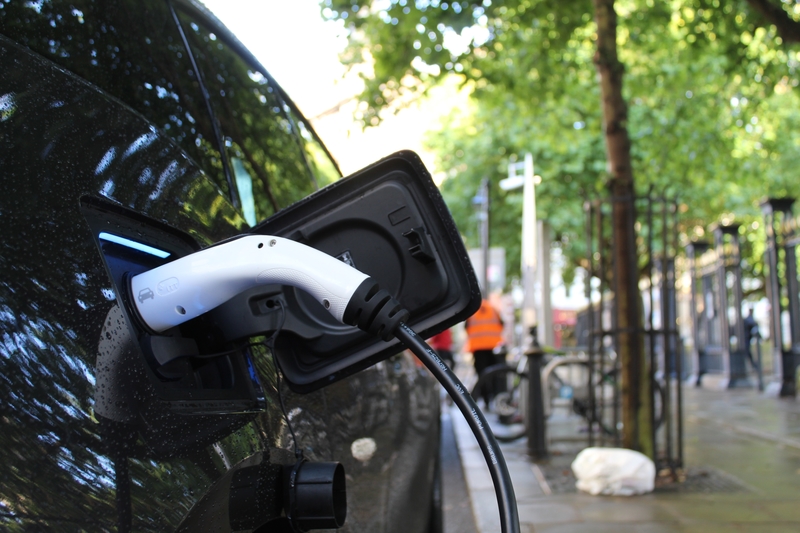
Electric cars (EVs) are on the rise in Thailand. The Electric Vehicle Association of Thailand (EVAT) reported a sharp increase in the number of electric vehicles registered in 2019.
The Department of Land Transport statistics shows that as of 31 December 2020, there were 2,854 electric vehicle registrations in Thailand, including 1,572 new cars, up 380% from 2018 when only there were only 325 registered.
Hybrid electric vehicles and plug-in hybrid electric vehicles reached a total of 153,184 vehicles. (Hybrids are electric vehicles with a back-up conventional petrol engine, and switches between the two power trains)
The President of the Electric Vehicle Association of Thailand (EVAT) stated that the growth of PHEV and EV is up more than 51% from a year earlier.
The increase in electric vehicle registration will have an effect shortly as the need for charging stations will increase as well.
Therefore, this year may see full model commercial charging stations, with the private sector playing an increasingly important role.
EVAT promotes and supports the exchange of information about technology and innovation for all types of electric vehicles for the development of EV technology in Thailand.
There are more than 200 members from the private sector, educational institutions, state enterprises and individuals.
Green Technology in Thailand
Green technology in Thailand is seeing major support from both the public and private sectors. In addition, the country’s citizens are embracing various green technology in all its forms.
For example, in March 2019, OpenGov Asia reported Thailand has ambitious and revolutionary solar energy plans.
The largest and oldest cement and building material company in Thailand and Southeast Asia aim to install a giant 45-megawatt floating solar farm at the Sirindhorn Dam — the first of eight dams that may receive the treatment.
Floating solar farms provide the benefits of solar energy without taking up valuable space on dry land in densely populated areas.
Other advantages include their comparative ease of installation and decommissioning, along with helping to reduce evaporation as a result of partially covering the water surface.
The cement company is among Southeast Asia’s biggest manufacturers of building materials. It has developed its own proprietary floating solar panels that it promises to build, install, and maintain.
The company’s panels are made from high-density polyethylene, which is both durable and recyclable. The company claims that its panels will last for around half a century and take up approximately 10 percent less space than the floating plants developed by rival companies.
The company plans to build a floating solar plant at Sirindhorn Dam is the first part of an ambitious floating solar panel project announced by Thailand’s state-run Electricity Generating Authority of Thailand (EGAT).
More recently, in January 2020, a Thai-Chinese consortium signed an EPC contract to build the world’s largest hydro-floating solar hybrid project for the EGAT.
The consortium, as a selected bidder with the deal worth over THB842 million, will construct and install a 45-MW solar power plant on water surface combining with the existing hydropower of EGAT.
Implementing this project is an important eco-friendly energy scheme that will encourage and strengthen the kingdom’s security of power supply.
It was noted that the hydro-floating solar hybrid project at Sirindhorn Dam is regarded as a major step in the development of renewable energy in Thailand.
Thailand is currently taking proactive measures to help in the global fight against climate change, enacting various policy changes and encouraging the use of renewable energy, solar panels, wind turbines and other green technologies.
















